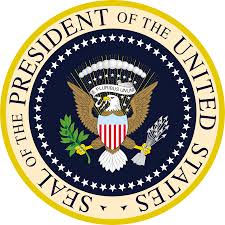Want to know who will win the 2016 presidential election? It may be useful to look at recent electoral history for clues. Here are 5 tendencies that may suggest a certain outcome:
1. After one party has two consecutive terms in the White House, the following election almost always goes to the other party.
Since the ratification of the 22nd amendment to the U.S. Constitution in 1951, presidents have been limited to two terms in office. Of the 7 times since that the same party has held the White House for two consecutive terms, the opposing party has won 6 of the following elections. These occasions are highlighted in bold below:
1945-1953 – Roosevelt/Truman (D)
1953-1961 – Eisenhower (R)
1961-1969 – Kennedy/Johnson (D)
1969-1977 – Nixon/Ford (R)
1977-1981 – Carter (D)
1981-1989 – Reagan (R) – Carter did not get reelected – does not apply
1989-1993 – George H.W. Bush (R) – THE ONE EXCEPTION – elected after Reagan’s 2 terms
1993-2001 – Clinton (D) – Republicans had 3 terms – does not apply
2001-2009 – George W. Bush (R)
2009-2017 – Obama (D)
Theories:
• After two terms, voters suffer “fatigue” with the party in power, i.e., the pendulum swings back. Any failures and scandals (which always seem to accumulate in a 2nd term) are associated with the president’s party. In addition, on 4 occasions (Nixon 1960, Humphrey 1968, H.W. Bush 1988, Gore 2000), the sitting Vice-President was nominated by their party to succeed the outgoing president. Each of these candidates (only George H.W. Bush was successful) was closely associated with the previous regime.
• Second-semester senior syndrome – you remember that time, right? You stopped caring about school and coasted. You did what you wanted. You told everyone that you didn’t like to get stuffed. It’s the same for presidents in their last 2 years in office. Sometimes they even pardon their friends and supporters. This can leave a bad aftertaste with voters, who take it out on the President’s party.
Quiz Question #1: Who is the only President to win more than 2 Presidential elections? How many times? See answer below.
2. Most elected presidents were governors or vice-president previously.
Starting now and going backward, here are the last 15 presidents and the most recent government job each had before being elected.
Barack Obama – U.S. Senator
George W. Bush – Governor of Texas
Bill Clinton – Governor of Arkansas
George H.W. Bush – Vice-President
Ronald Reagan – Governor of California
Jimmy Carter – Governor of Georgia
Gerald Ford – (does not apply – was appointed Vice-President after Spiro Agnew resigned in 1973 & became president when Nixon resigned in 1974)
Richard Nixon – Vice President
Lyndon Johnson – President (following the assassination of Kennedy)
John Kennedy – U.S. Senator
Dwight Eisenhower – Army General
Harry Truman – President (following the death of Roosevelt)
Franklin Roosevelt – Governor of New York
Herbert Hoover – Secretary of Commerce
Calvin Coolidge – President (following the death of Warren Harding)
Barack Obama was only the 2nd president since 1921 to go from the Senate to the White House. Of the 11 men not already president when first running, 7 were most recently a governor or vice-president.
Theories:
• Voters want their president to have high-level executive experience, and a governorship (especially of a large state) fits this bill. I don’t know if being vice-president counts, (what do they do, really?) but perhaps the prestige of the position is enough.
• The skillsets required for a president and a legislator are very different. Being president involves exercising authority and commanding a large complex organization. Legislating is all about teamwork, negotiation, and deal making.
• Legislators often have a long voting record that can be examined and criticized, often putting the candidate on the defensive. Their votes are often practical in nature rather than ideological, the result of the deal making. Note that Barack Obama had a relatively short tenure as a U.S. Senator (and therefore a short voting record) before running for president, about 3 years.
Quiz Question #2 – What office did Gerald Ford hold before becoming Vice-President in 1973?
3. Most elected presidents are in their 40s or 50s when taking office.
Ages (rounded to the nearest year) of the last 10 Presidents who first took office by winning an election.
Barack Obama – 47
George W. Bush – 55
Bill Clinton – 46
George H.W. Bush – 65
Ronald Reagan – 70
Jimmy Carter – 52
Richard Nixon – 56
John Kennedy – 44
Dwight Eisenhower – 62
Franklin Roosevelt – 51
High Age – 70, Low Age – 44, Median Age – 53.5
Only 3 of the last 10 have been over the age of 60 when first elected, with the “sweet spot” being the mid 40s to the mid 50s.
Quiz Question #3 – Who was the youngest President when first taking office?
Quiz Question #4 – Who was the oldest President when first taking office?
4. Obese presidents are rare
According to Forbes magazine, only 5 Presidents (Taft, Taylor, Cleveland, McKinley, and Teddy Roosevelt) have been obese. Bill Clinton is the only recent President who would be considered overweight.
5. Recent elected presidents have come from (or been associated with) the most populous states.
Population rank of the state associated with the president (based on the census closest in time to his election) in parentheses:
Obama – Illinois (5)
Bush – Texas (2)
Clinton – Arkansas (33)
Bush – Texas (3)
Reagan – California (1)
Carter – Georgia (13)
Nixon – California (1)
Kennedy – Massachusetts (9)
Eisenhower – Born in Kansas, lived in New York (1) before being elected.
Franklin Roosevelt – New York (1)
Quiz Question #5 – Which state (by principle association) has produced the most presidents?
So, based on these tendencies, a fit and trim Republican ex-governor from a populous state in his 40s or 50s will win. (Note that I didn’t include ex-VP in the description. None of the 3 living Republican ex-VPs, George H.W. Bush, Dan Quayle, and Dick Cheney, are likely to run. Also note the usage of the adjective “his” – I assume everyone knows there has not yet been a female president).
I’m not suggesting you run off to place your bets in Vegas based on this information. These are just the tendencies, and the precedents are sometimes broken. If, in 1999, someone had predicted, “In 2008 a first-term African-American senator will edge out Hillary Clinton for the Democratic presidential nomination and then win the general election,” you probably would have laughed. That entire sentence would have seemed ridiculous.
Quiz Answers:
1. Franklin Roosevelt won 4 elections: 1932, 1936, 1940, and 1944.
2. Gerald Ford was House minority leader and congressman from Michigan before becoming Vice-President.
3. Teddy Roosevelt, who was 42 years, 322 days old on the day of his inauguration.
4. Ronald Reagan, who was 69 years, 349 days old on the day of his inauguration.
5. It’s a tie between New York (Van Buren, Fillmore, Arthur, Cleveland, Teddy Roosevelt, Franklin Roosevelt) and Ohio (Benjamin Harrison, Hayes, Garfield, McKinley, Taft, Harding) with 6 each.
 Thought Widget get learnt
Thought Widget get learnt





One comment
Pingback: QuickThoughts: Do Jeb Bush and Hillary Clinton Really Want to be President? | Thought Widget